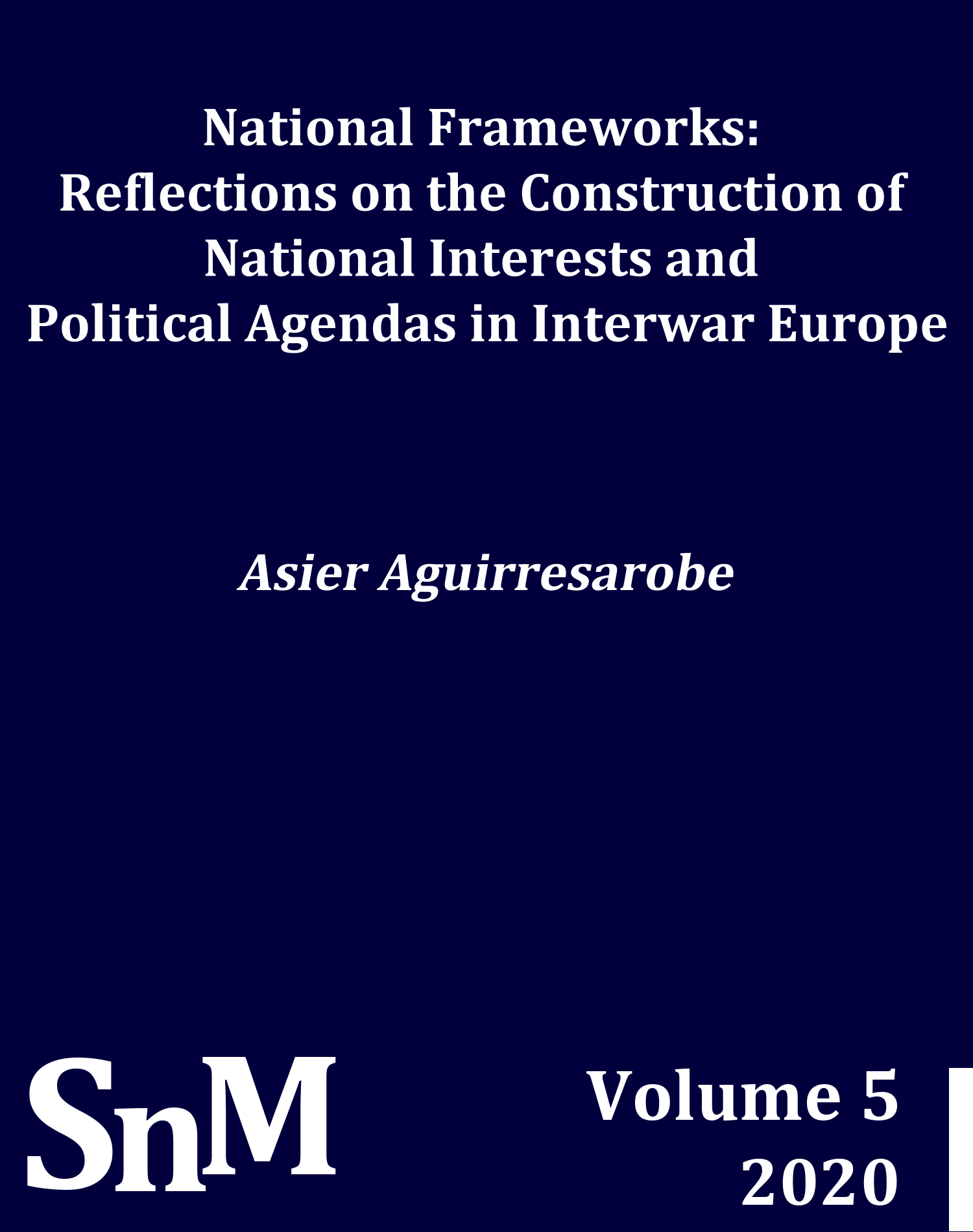National Frameworks: Reflections on the Construction of National Interests and Political Agendas in Interwar Europe
Keywords:
National identity, Narration, International institutions, National minorities, International legitimacyAbstract
This article explores the relationship that exists between ideology and political interest and applies it to the study of the international system that arose in Europe after the First World War. Following Alexander Wendt’s approach to identity as a socializing process, we have underscored the extent to which the principles of the Versailles system affected its member’s identities and goals. Because these assumptions derived from the national narratives that had become widespread in Europe during the previous decades, the new international framework became decisively modelled in accord to nationalist ideas. In turn, this meant that member states were socialised within an environment in which nationalist claims and interests could be perceived as legitimate. By depicting nations as the product of narrative practices, this research tries to shed light on the ways in which the institutionalised logic of national discourse influenced international developments after 1920. To do so, a general examination of some political instability issues in interwar Europe will be provided so as to analyse the degree to which nationalist assumptions shaped them. Finally, we argue that this framework had enormous consequences not just for minority and border populations which became increasingly regarded as factors of instability, but also for the broader objective of the Versailles system of maintaining a specific balance of power in Europe.

Published
How to Cite
Issue
Section
Copyright (c) 2020 Asier Aguirresarobe

This work is licensed under a Creative Commons Attribution 4.0 International License.
Authors who publish with this journal agree to the following terms:
- Authors retain copyright and grant the journal right of first publication with the work simultaneously licensed under a Creative Commons Attribution License that allows others to share the work with an acknowledgement of the work's authorship and initial publication in this journal.
- Authors are able to enter into separate, additional contractual arrangements for the non-exclusive distribution of the journal's published version of the work (e.g., post it to an institutional repository or publish it in a book), with an acknowledgement of its initial publication in this journal.
- Authors are permitted and encouraged to post their work online (e.g., in institutional repositories or on their website) prior to and during the submission process, as it can lead to productive exchanges, as well as earlier and greater citation of published work (See The Effect of Open Access).
